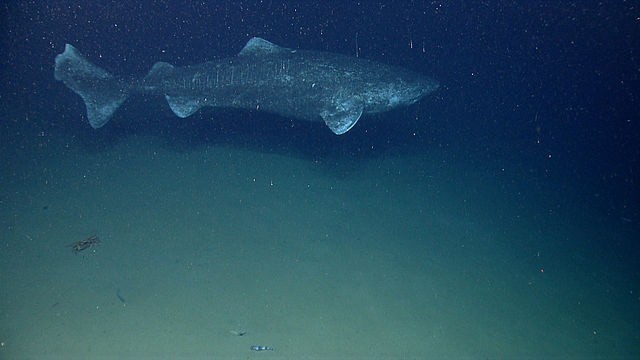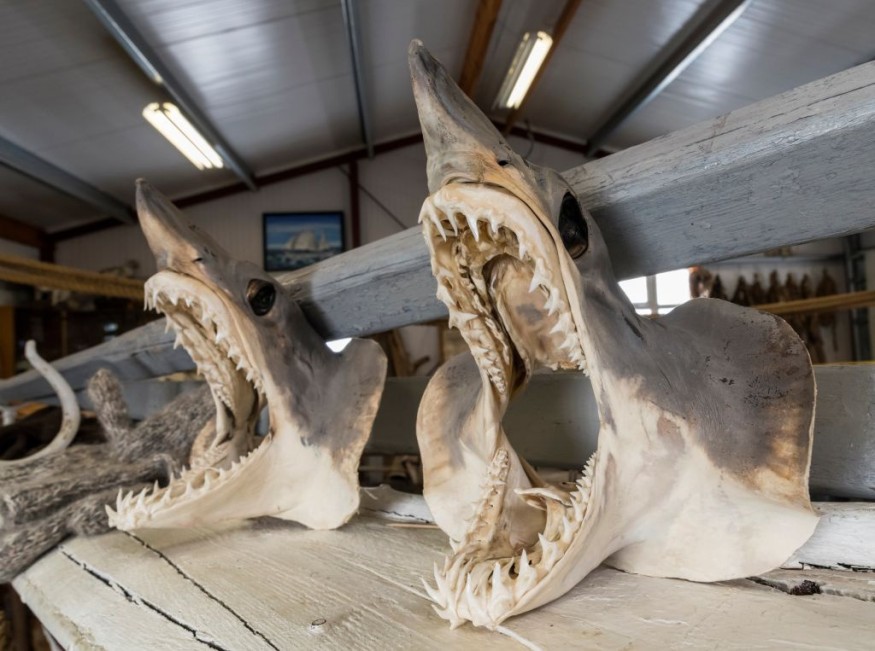Scientists have discovered that Greenland sharks only require only 200g of fish every day to thrive, perhaps offering insight into how they manage to live for hundreds of years.
Gathering Information

Researchers headed by Eric Ste-Marie of the University of Windsor in Canada have gathered significant information on this unique and understudied species in the face of anthropogenic stresses by examining its metabolic rates.
Greenland Sharks
Greenland sharks may be found in the North Atlantic and Arctic Oceans and the seas around Greenland. They are a huge species that may reach up to 20 feet in length; however, most only get eight to fifteen feet.
It is the world's longest-living vertebrate and one of the world's longest-living animals. They might live for 500 years, according to scientists.
Researchers utilized atmospheric changes generated by nuclear bomb testing over several decades to estimate the ages of 28 Greenland sharks, the oldest of which was between 335 and 392 years old, according to a study published in Science in 2016.
Eric Ste-Marie and colleagues investigated the field metabolic rate of Greenland sharks in a research published in the Journal of Experimental Biology. This measures how much food an animal needs daily to survive.
They caught 30 Greenland sharks for five years, which were tagged, sampled, and fitted with biologger kits that recorded their movements, body temperature, and water temperature.
The results revealed that the species was sluggish and moved at a snail's pace.
Utilizing Data
Using this data, the researchers calculated the daily calorie requirements of Greenland sharks, discovering that a 500-pound individual required between two and 6.5 ounces of fish or marine animal prey to live.
This is far lower than the numbers of other great shark species that live in warmer waters and move quickly. According to research released in 2013, a 2,000-pound great white shark would need to devour 66 pounds of fat every 11 days to thrive.
"We would anticipate [Greenland sharks] to have sluggish metabolisms," Vincent Raoult, a Postdoctoral Researcher at the University of Newcastle's School of Environmental and Life Sciences, told Newsweek, "but how slow is certainly unexpected and matches well with a study on the age of these sharks."
According to a previous study, animals with slower metabolic rates live longer, whereas those with quicker metabolic rates have shorter lives.
Greenland sharks' lengthy lifespans may be explained in part by their sluggish metabolic rate, according to Raoult.
Extraordinary Sharks

Greenland sharks are an oddity in that they are enormous yet have incredibly sluggish metabolisms, he added. Larger animals usually have longer lifespans but also greater resting metabolic rates.
According to the researchers, understanding the nutritional needs of Greenland sharks is critical to predicting how the species would fare when prey availability and food webs fluctuate as a result of climate change.
The population of Greenland sharks is declining, and its Arctic environment is warming faster than any other location on the planet.
According to researchers, Greenland sharks can survive on very little food, but their future is uncertain. Climate change is affecting both the physical environment and biological communities of the Arctic, highlighting the importance of obtaining data on the behavior and energetics of species like the Greenland shark.
Putting the Study to Use
According to Raoult, in general, [the study] illustrates that these are slow-growing species sensitive to overharvesting and climate change-with rising temperatures that raise metabolic rates.
On the other hand, they require extremely little food to complete their metabolic needs, implying that they may survive with only a limited population of fish to feast on.
Related Article : Sharks Have Been Around Longer Than Trees: 5 Astounding Facts About This Apex Predator!
For more animal news, don't forget to follow Nature World News
© 2025 NatureWorldNews.com All rights reserved. Do not reproduce without permission.





